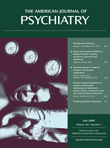I had to drop to my knees to talk with her. She was sitting in her wheelchair, but the osteoporosis had further withered her spine, and she sat slumped forward, with her head leaning even further forward, facing her knees. She was on my clinic list as another follow-up for depression at the nursing home. Her husband had died about 8 months earlier, and her health was declining. She was in pain from her osteoarthritis and found it hard to get around without help. She had a long history of recurrent depression, and her latest episode had begun well before her husband’s death. She seemed stable enough to the staff, and she was tolerating the antidepressant reasonably well. Then she turned and looked at me. Her eyes sparkled, with an unmistakable glitter that arrested me. I was surprised.
“How do you get through all this?” I wondered out loud. She responded simply, “Prayers and memories…and there were a lot of good ones.” Looking back on her wonderful marriage, supportive children, and fulfilling work had given her a lifetime of memories. Now she spends time reflecting on all of these accomplishments, experiences, and most of all, her thoughts of her husband. She revels in the comfort that gives her even as her body is collapsing. With her memories, her husband is with her, even though he left her, and her work and achievements are there even though she can now do little on her own. The nursing aide was by her side and gave me a minute to interview her. My patient smiled at me. She seemed at peace, and I was perplexed.
The direction of thoughts throughout life is a curious thing. When young, we turn our attention to the things we plan, we hope we’ll accomplish in a seemingly endless string of days full of possibilities.
It seems young people talk about what they are going to do.
Middle age, however, brings burdens of work to be accomplished, bills to be paid, and family responsibilities that seem all too overwhelming. The days do not seem as endless, and one is caught in the middle of promises made to oneself and the burden of the work to be done—now.
Middle-aged people talk about what they have to do.
She talked briefly to me. She said the memories of her life with her husband were a comfort to her, and that smile flashed again. Her peace was obvious. She knew she was far closer to the end of her life than the beginning, and she was content with that fact. It was not that she had wishes of death or was living in the past. She knew where she was—closer to the end of life than the beginning or the middle, and she did not wish to have things any other way. She simply accepted her life. Appreciating the help from the nursing aides and me, she thanked me for my visit. Her pain and understandable depression were there, and she appreciated any help for both. She was managing the present the best she could. She wasn’t living in the past as much as she was appreciating it. She was content.
Elders revel in their accomplishments.
As I left the room, I wondered whether I was doing as well managing the present and appreciating the past. Was I using my many blessings from the past to help me multitask the present and prepare for the future? There seemed to be strength in “prayers and memories,” certainly for her. I resolved to remember that.
I hurried to the next patient to finish what I had to do.

